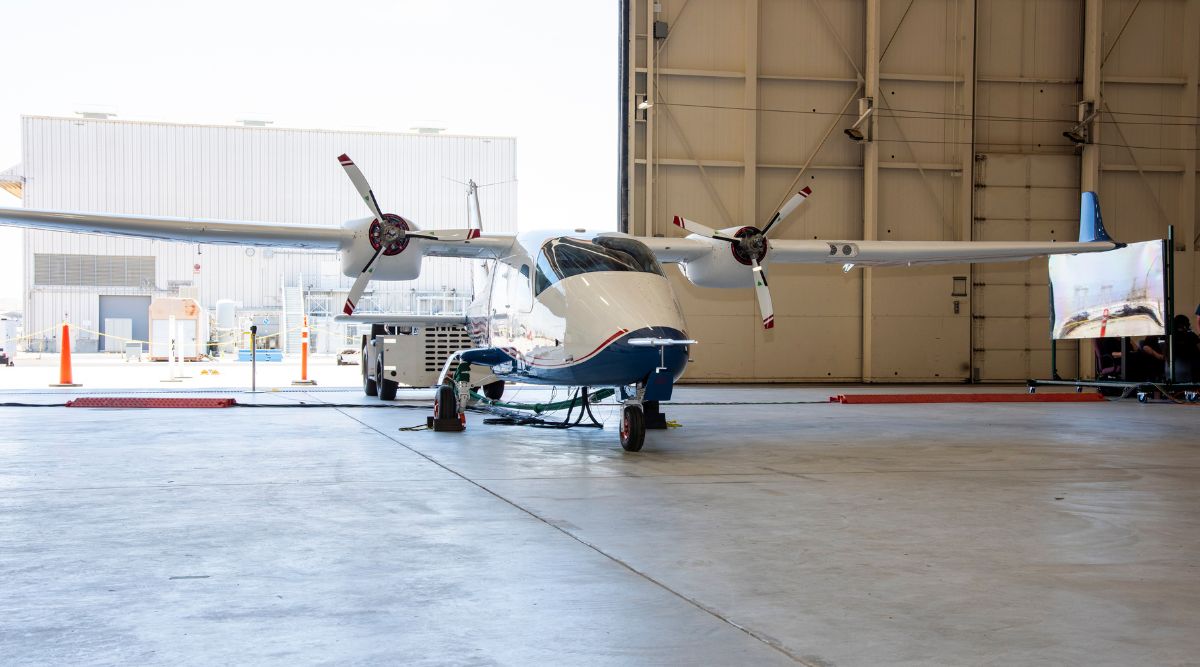NASA’s X-57 Maxwell electric plane gets closer to first flight with successful thermal tests
NASA successfully completed the thermal testing of its X-57 Maxwell electric plane's cruise motor controllers, taking the experimental flight design one step close to its first flight.
 The X-57 Maxwell was made by modifying an Italian Texnam P2006T light aircraft to be powered by an electric propulsion system. (Image credit: NASA/Carla Thomas)
The X-57 Maxwell was made by modifying an Italian Texnam P2006T light aircraft to be powered by an electric propulsion system. (Image credit: NASA/Carla Thomas) NASA announced that its X-57 Maxwell all-electric aircraft completed thermal testing of its cruise motor controllers, reaching another milestone on the journey towards its first flight. The thermal testing validated the design, operability and quality of the controllers, which are critical components that power the X-57’s experimental electric motors.
What is NASA’s X-57 Maxwell electric aircraft?
The X-57 Maxwell is the agency’s first all-electric experimental aircraft. The main goal of the project is to share X-57’s electric propulsion-based design with regulators in a bid to advance certification approaches for emerging electric aircraft.
The X-57 Maxwell was made by modifying an Italian Texnam P2006T light aircraft to be powered by an electric propulsion system. Using an existing aircraft design is useful because data from the normal models, which are powered by internal combustion engines, can be compared to the data produced by the same model that uses electric propulsion.
Thermal testing of X-57 Maxwell’s cruise motor controllers
The cruise motor controllers turn the energy stored in the aircraft’s lithium-ion batteries into electricity that powers its motors, which in turn, drive the propellers. It is important that these systems are able to withstand extreme temperatures during flight. These controllers use silicon carbide transistors to deliver 98 per cent efficiency as the aircraft takes off and cruises, meaning that they do not generate too much heat. They can be cooled off by the air flowing through the motor.
During the test conducted at NASA’s Glenn Research Center in Cleveland, each of the controllers survived a range of temperatures from minus 23 degrees Celsius to 63 degrees Celsius. As this was happening, the testing team closely monitored the temperature responses of the power components and control components in the flight motor controllers, ensuring that they stayed within the allowable thresholds.
Now that the thermal tests of the flight controllers have been completed, the next step for the X-57 is an upcoming Flight Readiness Review at the space agency’s Armstrong Flight Research Center in California. After that, the X-57 Maxwell will be ready for research flights.







